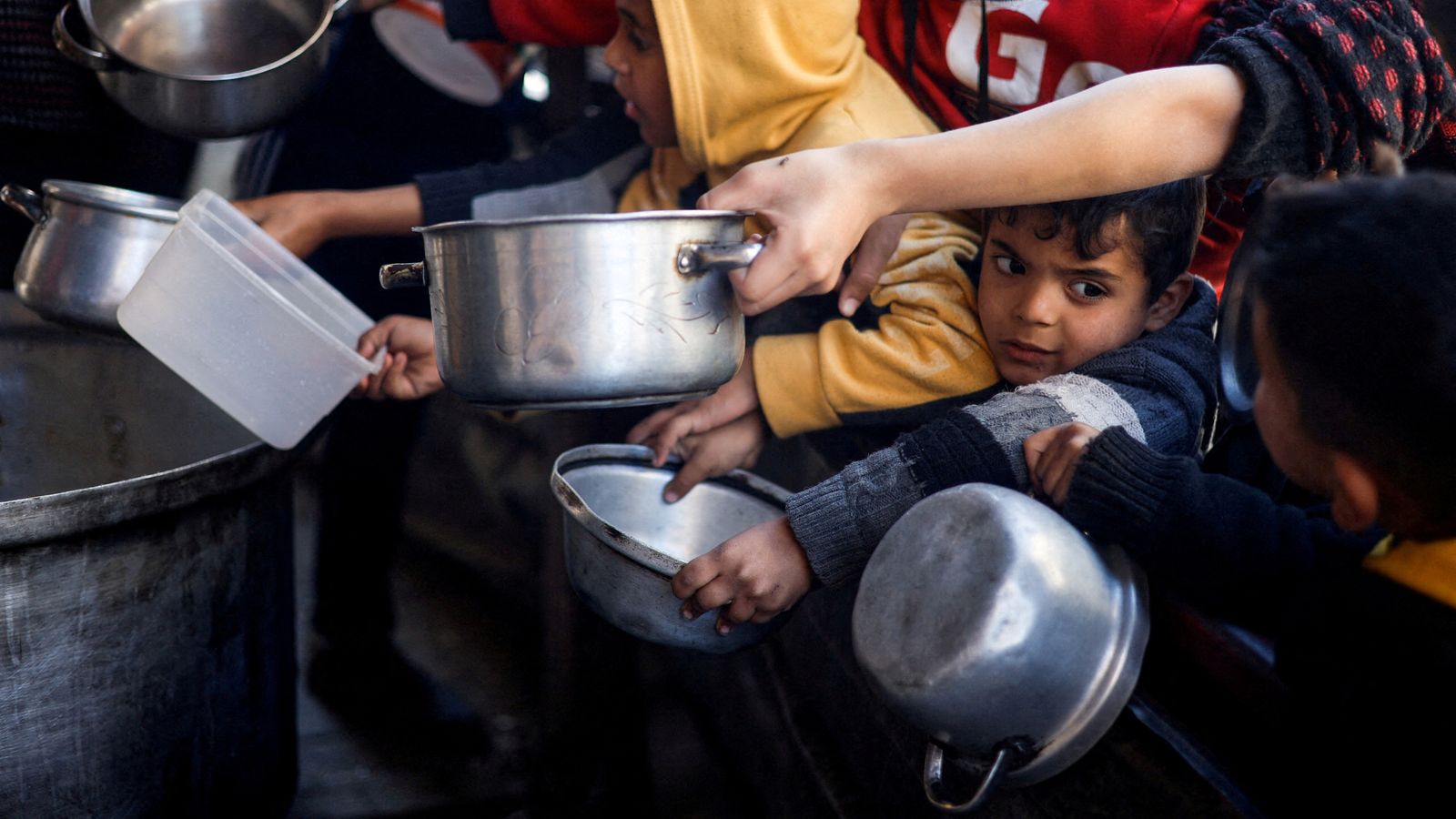Gaza has become “the most dangerous place in the world”, forcing some aid agencies to suspend their activities in the besieged enclave following the death of seven World Central Kitchen (WCK) workers.
WCK called a halt to its work in the war-torn region after members of their staff, including three Britons, were killed when an Israeli strike hit the three marked cars in which they were travelling.
The group’s movements through the “deconflicted zone” had been co-ordinated with the Israeli military for safety, WCK added.
Several Non-Governmental Organisations (NGOs) have suspended their activities in Gaza as, according to the United Nations (UN), the number of aid workers killed in the besieged enclave since the Israel-Hamas war started on 7 October is 176.
Anera, a partner of WCK and Project HOPE that provides humanitarian aid in the Middle East, also announced on Tuesday that it would take the “unprecedented step” of pausing its humanitarian operations in Gaza.
Since the war began, Anera has provided an average of 150,000 meals daily in Gaza.
Gaza aid agencies suspend work after staff killed in Israeli airstrike, but some stay to avert ‘killer blow’
Who were the aid workers killed in Gaza airstrike? What we know about the seven victims of ‘grave mistake’ by Israeli forces
Israel-Hamas war: Three Britons killed in Gaza named, as IDF says ‘misidentification’ led to deadly airstrike
“The blatant nature of the attack on WCK’s convoy has proven that aid workers are currently under attack,” said Anera’s media relations officer Steve Fake. “Our decision to resume aid relies on the safety of our staff.”
The International Medical Corps, which has one of the largest field hospitals in Gaza’s southern city of Rafah with 140 beds, said it is “rethinking our process,” including its plans to set up another field hospital in Deir al-Balah, the city situated in the central Gaza Strip.
Aid convoy targeted three times
Juliette Touma, director of communications at United Nations Relief and Works Agency (UNRWA), told Sky News the group’s convoys were allegedly targeted three times despite having gone through “deconfliction”, a process whereby details of aid workers’ movements are shared with the Israeli army in order to shield them.
The Israeli military has been approached for comment.
Pointing to the number of UN staff killed in Gaza in the past six months, Ms Touma said: “This is the highest number of UN workers killed in any single conflict or in a natural disaster in the history of the UN.”
Aid workers are “racing against time to avert famine” which, according to the UN’s Food and Agriculture Organization (FAO), could happen between now and the end of May in areas of the north, where UNRWA has allegedly been denied access since the end of January.
Read more:
Who were the aid workers killed in Gaza airstrike? What we know about the seven victims
Three Britons killed in Gaza named, as IDF says ‘misidentification’ led to deadly airstrike
Speaking on the Sky News Daily podcast, Ahmed Bayram, media adviser for MENA (Middle East and North Africa) at the Norwegian Refugee Council, said the impact of NGOs suspending work in Gaza could be a “killer blow”.
“The entire Gaza strip has been turned into this death zone, it’s the worst it has been in any conflict zone for aid workers.
Be the first to get Breaking News
Install the Sky News app for free
“A ceasefire couldn’t come soon enough to end this suffering for everybody involved,” Mr Bayram added.
Amid worldwide condemnation of Monday’s airstrike, Israeli Prime Minister Benjamin Netanyahu took to X, formerly known as Twitter, to say that Israel “deeply regrets the tragic incident” and that an investigation would be carried out as it is “fully committed” to civilians in Gaza receiving humanitarian aid.
‘Most dangerous place in the world’
Medical Aid for Palestinians (MAP) told Sky News that Gaza “is now the most dangerous place in the world to be an aid worker” as it alleged one of its medical teams had also been hit in January when an MAP compound in southern Gaza was hit by an airstrike, injuring several workers.
MAP, which despite Monday’s events will keep up its work in Gaza, claimed “six different explanations” were given but provided no clarity, with Israel at first denying responsibility and then accepting it.
“It is clear from this experience that the Israeli military and government are either unable or unwilling to properly investigate this serious incident.”





